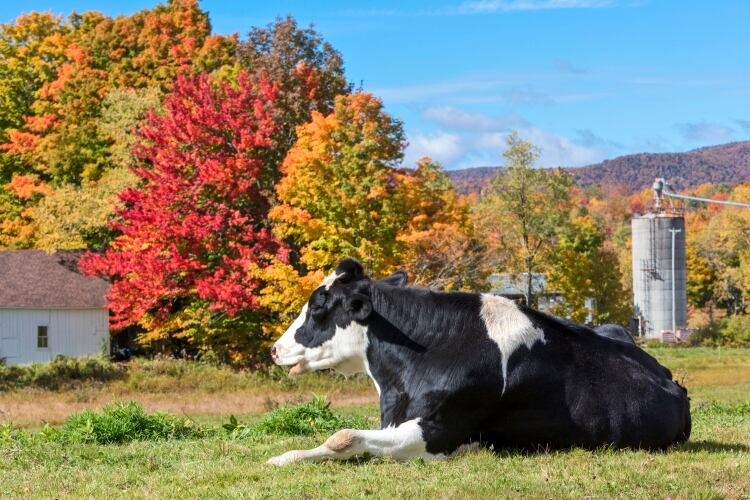Producers in Maine, New Hampshire, Vermont and some parts of New York have received formal letters from Danone.
In a statement, Danone North America said growing transportation and operational challenges in the dairy industry, particularly in the northeast, led to the decision.
“Eighty-nine producers across the northeast received this non-renewal notice,” the company said.
“To help facilitate a smooth transition, we are offering each producer the opportunity to enter into a new agreement for us to purchase their milk until August 31, 2022 to provide additional time and support.
“We will be supporting new partners that better align with our manufacturing footprint. We are committed to continuing to support organic dairy in the east, and in the last 12 months alone, we have on boarded more than 50 producers new to Horizon Organic that better fit our manufacturing footprint. This decision will help us continue providing our consumers with the products they love.”
Ed Maltby, executive director of the Northeast Organic Dairy Producers Alliance (NODPA), said the organization had a conversation with a representative from Danone, who confirmed no other producers will be receiving letters ending their contract, and that the 50 new-to-Danone producers come from PA, NY and OH, which is now the Danone East region. All the milk from the region will continue to go to Steuben Foods, in Elma, NY.
Maltby said the footprint mentioned in the statement is the distance to the processing plant and is in the region of 300 miles.
He added that, among the measures that can be taken immediately is a consumer boycott of all Danone products citing their exploitation of family farms by using their monopolistic position in cancelling individual contracts and driving organic dairy farms out of business.
Maltby said there are few, if any, alternatives.
“CROPP or other handlers (DFA, DMS, NFO) may be willing to build a pool of milk under a utilization contract but that will be a very challenging situation for pay price unless it can be utilized as Class 1 milk as well as some in organic,” Maltby said.
“For those that have influence within CROPP Cooperative and Lactalis/Stonyfield, encourage them to enter into discussion with the Northeast organic dairy community about ways to move forward. A year is a very short time.”

